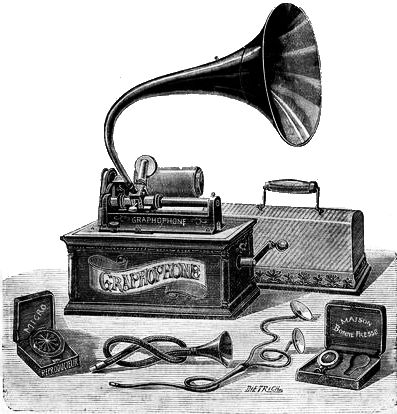

_aerial_view_from_helicopter_(2000-08-18)_(cropped).jpg) Often God allows for things that He does not wish for. The Twin Towers Tragedy (Wikipedia) "911" was a terrible tragedy---yet God allowed it. The entire incident probably evoked His tears more than His anger.
Often God allows for things that He does not wish for. The Twin Towers Tragedy (Wikipedia) "911" was a terrible tragedy---yet God allowed it. The entire incident probably evoked His tears more than His anger.
Man’s proud works these days are like towers: Google, Apple, Net Flix, Amazon, and the old-school wealthy moguls--are allowed by God. Truew, employers are often sensitive toward Christians who work for them. There higher management levels pay enormous salaries. If someone gave you a million, or a trillion dollars, what woud you do?
The very rich, however, are seldom interested in knowing Jesus.
Jerusalem was destroyed twice, yet Israel is still God’s chosen people.
God said through the prophet Hosea, “I desire mercy and not sacrifice” (Hosea 6:6 ). In fact, the word “mercy” is in the emphatic position: “Mercy I desire.” And the verb can be translated more strongly: “Mercy I delight in.” That is a strong statement, and it meant a lot to Jesus.
But few rich persons ever come to know Jesus--they are the ultra lost. The Bible has much to saw about this!
One of the teaching lessons of Jesus concerned with true wealth, His assessment of true wealth, is given to us in the account of the widow's mite,

Truly I tell you, this poor widow has put more into the treasury than all the others. They all gave out of their wealth; but she, out of her poverty, put in everything—all she had to live on” (Mark 12:43–44; cf. Luke 21:1–4).There are several things that the story of the widow’s mite teaches us. First, God sees what man overlooks. The big gifts in the temple were surely noticed by people; that’s probably what the disciples were watching. But Jesus saw what no one else did: He saw the humble gift of a poor widow. This was the gift that Jesus thought worthy of comment; this was the gift that the disciples needed to be aware of. The other gifts in the treasury that day made a lot of noise as they jingled into the receptacles, but the widow’s mites were heard in heaven.

![]()

![]()

From Ray Stedman
…our view of life may be so distorted that if hard times actually do come to us they may be the best years of our lives. That is what the Searcher tells us this morning in the passage we will be looking at in Ecclesiastes 6, where he declares that things are not what they seem to be. We think life is one way and it turns out to be something quite different. The thesis of our passage this morning is that we may be reading everything that is happening to us entirely wrong.
…There is an evil which I have seen under the sun, and it lies heavy upon men: a man to whom God gives wealth, possessions, and honor, so that he lacks nothing of all that he desires, yet God does not give him power to enjoy them, but a stranger enjoys them; this is vanity; it is a sore affliction. (Ecclesiastes 6:1-2 RSV)
...Qoheleth recognizes that to have abundance and possessions -- all that money can buy -- and yet lack the power to enjoy them is a very heavy burden to bear. Many people suffer from this. They drive shiny new cars, they have the latest electronic equipment in their big luxurious homes, which they are trying desperately to enjoy, yet their faces have a hollowness about them, their eyes betray an emptiness inside. I have on occasion stepped into the casinos up in Reno or Las Vegas to see what these places look like. There I saw people intent on finding riches, on getting more enjoyment out of life, but they looked like death warmed over. They sit there, unsmiling, pulling those one-armed bandits, but they have no sense of enjoyment, they project no feeling that there is anything pleasurable about what they are doing; rather they are involved in deadly serious work. What a boring thing that is! Observe the jaded lives of those who have everything but cannot enjoy anything they have.Furthermore, the Searcher says, material wealth and abundance can be frustrating: imagine a stranger enjoying what you cannot enjoy. Can there be anything more frustrating than getting something you always wanted to have, and then discovering that it had lost its luster, you no longer enjoyed it, so you passed it on to somebody else who could not afford it and he had a ball with it? That would make one very frustrated, even resentful: "Why couldn't I enjoy it?" he would be entitled to ask.
The key to all of this is in the words, "God does not give him power to enjoy." That lesson is pounded home to our hearts over and over again throughout this book. Enjoyment does not reside in increased possessions, it is a gift which God must give. If he withholds it, no amount of effort is going to extract enjoyment from things. That is a difficult lesson for some to learn. We are constantly bombarded with alluring pictures in catalogs and in commercials that shout at us the opposite message. Enjoyment, however, is a gift of God.
The question that immediately comes to mind is, Why would God withhold enjoyment? Why would he not give the power to enjoy if he gives the ability to have? The answer to that question is given in this book, and it is especially clearly stated in Chapter 2, Verses 25-26, where the Searcher says,
...for apart from him who can eat or who can have enjoyment? For to the man who pleases him God gives wisdom and knowledge and joy; (Ecclesiastes 2:25-26a RSV)To the man who pleases him." Again, I am afraid many people read that as though it means that some level of religious performance, some standard of morality, like joining a church or coming to meetings, is what pleases God. We must understand that the Scriptures never say that. Faith is what pleases God, believing him, taking him at his word and acting upon that word. This is what pleases God: obedience based upon faith. To such a man or woman God gives the gift of enjoying whatever he or she has. How little or how much it may be, is a gift poured out and taken from his hand. That is why gratitude, to be grateful for what you get, is the most important element of our lives.
How contrary this is to the spirit of our age! Shouted at us on every side today is the philosophy that we have a right to things. Television commercials in particular constantly tell us this. They hold up some alluring object that they want you to buy, and accompany it with a propaganda line that says, in one way or another, "You deserve this. You've got it coming to you. If you were being treated rightly this is what you ought to have." That is the spirit of our age. Do we realize that that contradicts the teaching that the Bible sets forth about our relationship to God? How can we have gratitude if we are only getting what we deserve? We cannot be grateful for that. Gratitude only comes when we feel we do not deserve something but we get it anyway.
All through the Scriptures we are told that the proper relationship of a believer to God, and that which pleases him, is to give thanks for everything: "In everything give thanks for this is the will of God concerning you," (1 Thessalonians 5:18 KJV). This book of wisdom exhorts us to receive everything with a grateful heart, realizing that we do not have it coming, it is a gift of God. Even if it is painful for the moment, there is a wise Father who has chosen it for you, and it will yield to you great and rich benefits. You can be grateful for the pain as well as the pleasure; that is the lesson of this book.
Do not love the world or the things in the world.
|
Lambert Dolphin

Lambert's Place
Email Lambert Dolphin
Archive for Newsletters



October 4, 2023.